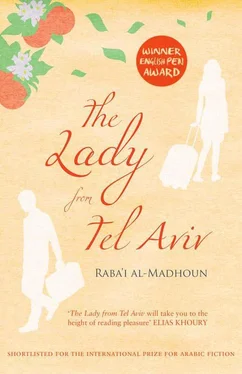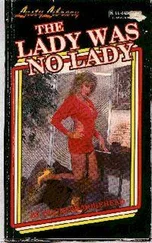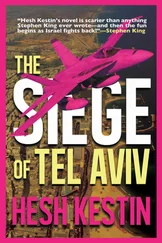‘You know what happened after that? Every time that sheikh saw my cousin, he’d ask: “How’s Salim, I mean, Abu Muhannad? Please send him my best wishes and kindest regards.”’
The memory of this conversation makes me suddenly laugh out loud. Abu Hatem turns to me and asks, ‘What’s so funny, Abu Fadi? You don’t like the conversation?’
‘Not at all. Everyone’s entitled to their own opinion, cousin.’
When the party shuts down, I turn the recorder off. There is enough dialogue here to fill ten pages.
Abu Hatem takes me on a tour of Gaza City so I can see my friend Muhammad Khadija. On the way there, I cannot stop thinking about Adel El-Bashity. I thought I was done with it. I thought I had handed the keys back to their owner. But as soon as I thought about it again, I began to realize I was mistaken. There were so many unanswered questions. Had the keys to Leila’s heart rusted after all these years? Or might they still open that door? Or would she keep away from the whole thing, given how scandalous a reunion might be? Or would it be he who backed off when he finally began to face the absurdity of those feelings he’d carried around for so many years?
All of a sudden Adel seemed cheap to me. He had used me at our meeting. I had handed him the keys that would unlock an old, neglected room in his heart. I had paved the way for him to enjoy the remainder of his days. And up till now, Adel had not even called to thank me. By now, he has met his Leila. He must have. If he had not, my mobile would be ringing the whole time, with him asking me to resume the search for Leila. It is just like the Palestinian — Israeli negotiations — they are always resumed one way or another. Sometimes they go forward, sometimes they falter, but even then, they’re resumed, and we all breathe a sigh of relief to know they have not yet died. And then they stumble again.
Why get upset about Adel El-Bashity? Don’t we say, Saw his girl, forgot the world? And besides, we were not even friends to begin with. We had only met because he was searching for Leila. That is the extent of it.
The fact is I liked Adel El-Bashity more in my novel than I did in real life. The fictional character was more authentic. And besides, what do you hope for from authenticity when the character departs from the text and begins to get mixed up with the real Adel? Isn’t that what happened when the three of us sat there in the Andalus Hotel Café, talking about Leila? Didn’t Adel find his two beings at that moment? Didn’t the two versions join together at that moment to rebel against me, the author?
I do not like the idea that this is how my protagonist will end up. I miss the Adel El-Bashity whose footsteps I was following, through light and shadow, fact and fiction, until I got to where I am.
Abu Hatem parks the car next to the curb, gets out and starts walking. I run to catch up to him. In my hand, I am holding the small statue of Nefertiti I have been carrying with me for so long.
Abu Hatem points to a man squatting on the ground. He is hunched over himself, leaning against the walls of the Tel al-Zuhur Hospital. Next to him is a long cane.
Reluctantly, I begin to approach. My heart is trembling. When, at last, I am standing directly over him, I begin to look hard at what is left of the man who, long ago, was my best friend. Now he is this beggar whose right hand hangs in the air for hours at a time, snatching whatever drops from the hands of people walking by. I brought you Nefertiti, Muhammad. Remember how you knew how to sculpt her in the air? That image has remained on display in my mind ever since. Who turned your artist’s hand into a purse for shekels? Who made you sit there, asking for handouts, an object of scorn and pity?
I think I am going to leave. I shut my eyes, unable to keep looking at the shape Muhammad is in. This is an unrecognizably distorted copy of the boy whose friendship had lit up my childhood. Abu Hatem waits for me a short way off. I turn away so no one can see the tears in my eyes.
Instead of walking off, I suddenly say hello. Muhammad answers me warmly. I reach into my pocket and take out two hundred dollar bills. As I put them into Muhammad’s palm, his fingers curl around the bills until they are swallowed in a tight fist. I press his hand to his chest and say: ‘That’s two hundred dollars, my deserving friend. I hope to give you fifty more each month …’
But he interrupts me before I can finish. ‘Look here, brother. I’m an old man, so please don’t tease me. May God ease your days.’
‘I’m not joking, brother. It really is two hundred dollars. Hold them in your hand.’
He lifts his head, bends first to the right, then again to the left. Exactly like he used to do when he wanted to figure out who it was who was talking to him. Then he laughs out loud. ‘God bless — and hear your prayers, brother! Is there anyone who gives anyone two hundred dollars these days? Even sons and brothers don’t do that for each other! Look, let’s leave it at one hundred. That’s more than enough. Or would you rather give me one hundred in shekels? Take your money and go your way, my good man.’
His fingers are now carefully inspecting the bills, even as he tries to hand them back to me. ‘It’s a good deed you’re trying to do for this poor old man. May God reward you for it!’
‘Muhammad, I’m not playing a trick on you. That is two hundred dollars you have in your hands.’
‘So you also know my name?’
‘Of course I do, you’re Muhammad Rayan.’
His left hand gropes across the ground searching for his cane, while the money still hangs in the fingers of his other hand. He leans over to stand up, and by now it is clear that I have rattled him. I reach out and touch his shoulder, urging him not to get up. He sits back down, and says aloud: ‘No one in Gaza City knows Muhammad Rayan. Muhammad Rayan disappeared long ago. You’re looking at Abu Saber, the most famous beggar in the entire Gaza Strip. Ask anyone from Beit Hanoun all the way to Rafah — they’ll know where to find me. Ask anyone at any of the Israeli checkpoints — they’ll all tell you that you can always find me sitting at City Hall. Is Israel shelling Gaza today? Is Fatah clashing with Hamas, or just with itself? Is there a family feud raging somewhere? It doesn’t matter — Abu Saber is sitting in his usual spot at City Hall. And he’ll go on sitting there until someone decides it’s time for him to close up his begging shop.’
‘But City Hall used to be Tel al-Zuhur Hospital, didn’t it, Muhammad Khadija?’
‘Who are you? You’re not from here. Everyone who used to know me by that name is long gone.’
I wish I could put Nefertiti in his hands and let his fingers feel it. Let his fingers feel it all over and remind him of the image he once drew for us. But I worry how it might affect him.
I step away and decide to leave Muhammad to his hazy misgivings. Sometimes doubts are better than the truth — they allow us to turn them over in our minds for a while until, bored, we are happy to return to our old selves.
I grab both of his hands and shake them, saying goodbye as I turn. ‘Farewell, Muhammad, my friend. You’ll get your fifty dollars on the first of each month. Please, please stop begging and go back to who you were before, Muhammad Khadija. As soon as you do that, someone will come to tell you who I am.’
Nefertiti rests in my hands as I walk away. Abu Hatem has already got into the car and is sitting behind the steering wheel. Before opening the door and getting in, I turn around and see Muhammad standing there, leaning on his cane.
Abu Hatem turns the key in the ignition and Muhammad realizes I am about to go. He waves his cane around in the air and screams so loudly it splits my heart. As we drive away, he calls out: ‘Who are you — you stranger who is not a stranger?’
Читать дальше












